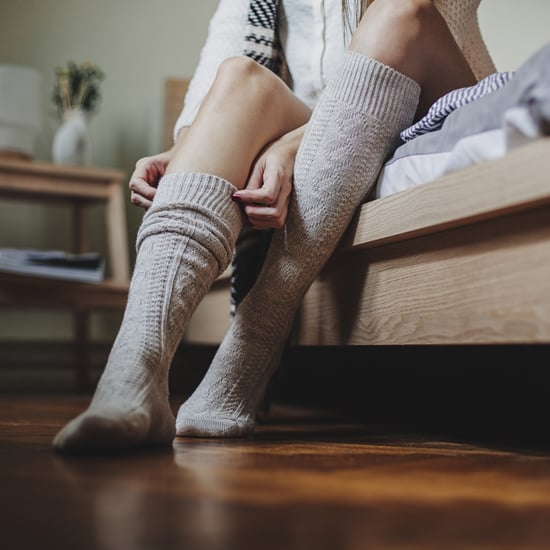Do I Have Insomnia?
Having Trouble Sleeping? Here's How to Know If You Should Call Your Doctor

Everyone has nights when they simply can't fall asleep, but while people casually refer to that as insomnia, doctors define it differently. If you're suffering from the condition known as insomnia, you won't arrive at work bleary-eyed and clutching a massive cup of coffee just once, but over and over again. Here's how to tell if your restlessness requires medical attention.
What Are the Signs of Insomnia?
Marc Raphaelson, MD, a fellow of the American Academy of Neurology, told POPSUGAR that brief sleep interruptions are common and often normal, but he becomes concerned that a patient has insomnia if he or she has "difficulty initiating (falling) asleep, difficulty staying asleep, or wakes up in the early morning after short sleep." If these problems last for more than a month and consistently affect your ability to function during the day, it's time to talk to your doctor.
For one thing, if you have insomnia, it could be a side effect of another illness that needs to be treated. "People who have survived emotional trauma or abuse often have insomnia, and they have to work through both problems," Dr. Raphaelson said. "Insomnia can [also] result from restless legs or sleep apnea, even for people who don't snore." Other conditions can contribute to insomnia as well, so if sleep troubles have become a constant in your life, it's worth having the conversation.
Are There Ways to Treat Insomnia at Home?
Before you see a doctor (or while you're waiting for your first appointment with a specialist), there are a few things to try at home that may help. "Try to get on a regular, scheduled time to get out of bed, even if you haven't slept well," Dr. Raphaelson advised. "If you must nap, keep it to 20 minutes, even if you only sleep part of the time." He also suggests avoiding caffeine or chocolate after noon and being mindful of your nighttime routine, because certain habits can trigger insomnia.
"Several hours before bedtime, stop eating, stop exercising, stop balancing your checkbook, and stop arguing with . . . well, anyone," Dr. Raphaelson told POPSUGAR, as stress can affect your sleep. Also cut down on time spent watching TV, using the computer, or looking at your phone screen because the blue light keeps you more awake. And although it can be tempting, remember that "alcohol is never, never any good for sleep," he said. If you do depend on alcohol to get some shut-eye, you should get help immediately.
When Should You See a Doctor For Insomnia?
If insomnia is impacting your life, it's never too soon to see a doctor. That's especially true if you are depressed or have suffered emotional trauma at any time in your life, Dr. Raphaelson explained.
Many people have sleep issues for a short period of time and then return to normal, or are able to get back on track on their own by following a nighttime routine like the one outlined here. But if you have sleep problems that last more than three months, your best bet is to get professional help — whether insomnia is the root problem or the symptom of another medical condition, it's crucial to get treatment that will help you consistently get enough sleep.








